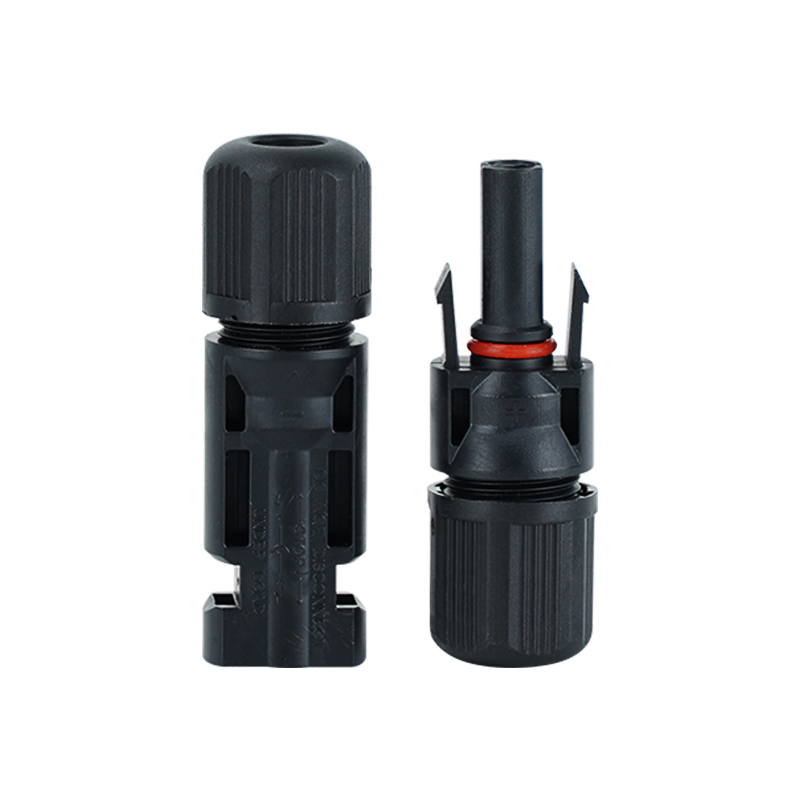Solar Connector: The Key to a Reliable Solar Power System
2025-04-16
As the world shifts towards renewable energy, solar power has become a leading solution for sustainable electricity generation. However, the efficiency and reliability of a solar power system depend on various components, one of the most crucial being the solar connector. These connectors play a vital role in ensuring that your solar panels, inverters, and other parts of the system are properly connected, safe, and functioning effectively.
In this blog, we’ll explore the importance of solar connectors, their types, how they work, and why they are essential for the long-term performance of solar energy systems.
What is a Solar Connector?
A solar connector is a specialized electrical connector used to join solar panels with other components in a solar power system, such as inverters, batteries, and charge controllers. Solar connectors are designed to handle the high voltage and current typically associated with photovoltaic (PV) systems while ensuring a secure and weatherproof connection.
These connectors are made from durable materials, often featuring corrosion-resistant metals and UV-resistant plastics to withstand the harsh outdoor conditions solar energy systems are exposed to. Given their critical role in electrical safety and system performance, solar connectors are built to ensure minimal resistance, high conductivity, and protection against environmental factors like dust, moisture, and extreme temperatures.
Types of Solar Connectors
There are several types of solar connectors, each designed for specific applications within a solar power system. Here are the most common types:
1. MC4 Connectors
The MC4 connector is the most widely used solar connector in the industry. It is known for its durability and ease of use. These connectors are often used for connecting solar panels in series or parallel to achieve the desired voltage or current output. They have a secure locking mechanism to prevent accidental disconnection and can be easily installed without special tools.
MC4 connectors are highly reliable, offering excellent protection against environmental factors and maintaining optimal conductivity even in extreme weather conditions. They are designed to handle the high voltage typical in residential, commercial, and industrial solar installations.
2. Junction Box Connectors
In addition to the MC4 connectors, junction box connectors are used to combine multiple cables within a solar panel setup. They are housed in a weatherproof box and provide a central point where wires from different panels are connected, ensuring that the wiring is organized and protected from the elements. Junction box connectors can also include diodes to prevent reverse current flow, which helps prevent energy loss and damage to the system.
3. DC and AC Connectors
Solar connectors are designed to work with both DC (direct current) and AC (alternating current) circuits. DC connectors are used to connect the solar panels to the inverter, while AC connectors are used for the output side of the inverter to connect the system to the home or grid. Both types of connectors must be able to handle the specific power ratings required for the system’s size and energy production.
4. Quick Connectors
Quick connectors are a type of solar connector that enables fast and easy installation or replacement of panels and components. These connectors are designed for professionals who need to install or maintain large solar arrays quickly. Quick connectors are often used in commercial or industrial installations where efficiency and speed are essential.
Why are Solar Connectors Important?
1. Electrical Safety
One of the most important functions of solar connectors is to ensure the safe transmission of electricity. Solar systems operate at high voltages, and any loose or improperly connected wiring can lead to electrical hazards like short circuits, arcing, or fires. A high-quality solar connector will minimize the risk of electrical faults by providing a secure, stable, and safe connection between components.
2. Efficiency and Performance
The performance of a solar energy system depends on how efficiently electricity can flow from the solar panels to the inverter and other system components. Poorly connected or faulty connectors can lead to energy loss, reduced system efficiency, and even failure of components. Solar connectors are designed to maintain a low resistance to ensure optimal power transfer and reliable performance of the entire system.
3. Weatherproof and Durable
Solar systems are exposed to various weather conditions, including rain, snow, high temperatures, and UV radiation. Solar connectors are engineered to be weatherproof, with high-quality materials that resist damage from environmental elements. This durability ensures that the connectors continue to function well over time, even in harsh conditions.
4. Ease of Installation and Maintenance
Solar connectors are designed to be easy to install and maintain, reducing the time and effort required for both the initial setup and ongoing maintenance of solar systems. For instance, MC4 connectors feature a simple “click” locking mechanism that makes them easy to attach or detach without the need for specialized tools. This ease of use is especially valuable when installing large-scale solar arrays or performing repairs on an existing system.
5. Longevity
The longevity of a solar power system depends largely on the quality of its components, including the connectors. High-quality solar connectors are built to last, offering reliable performance for many years. Given the long lifespan of solar panels (typically 25–30 years), it’s important to invest in connectors that will perform throughout the system’s lifetime.
Choosing the Right Solar Connector
When selecting solar connectors for your system, several factors should be considered:
- Compatibility: Ensure that the connectors are compatible with your solar panels, inverters, and other system components. Not all connectors are designed to work with every type of equipment, so it’s important to match the correct connector type to your setup.
- Current and Voltage Ratings: Choose connectors that are rated for the voltage and current levels of your solar system. Using connectors with inadequate ratings can lead to overheating, power loss, or system failure.
- Environmental Protection: Look for connectors that offer protection against the elements. Solar connectors must be able to withstand UV exposure, moisture, dust, and other environmental factors that could cause corrosion or degradation.
- Ease of Installation: Consider the ease of installation and maintenance when selecting solar connectors. For large or commercial installations, connectors that are quick and easy to install can save time and reduce labor costs.
Conclusion
The solar connector is an essential component in any solar energy system. From ensuring safety and efficiency to withstanding harsh weather conditions, these connectors play a crucial role in the overall performance and longevity of solar power systems. Whether you're setting up a residential solar array or managing a commercial installation, choosing the right connectors will help ensure that your system runs smoothly and efficiently for years to come. By investing in high-quality, reliable solar connectors, you can maximize your solar investment and contribute to a more sustainable future.



